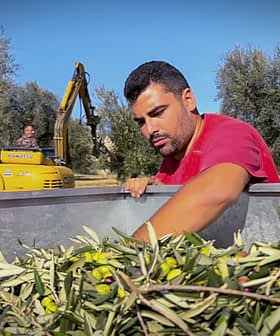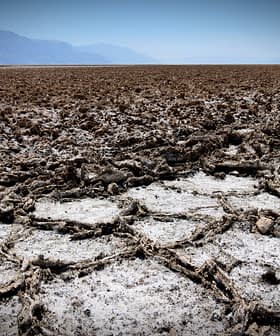Healthy Foods Are More Environmentally Sustainable
A new study reveals a clear link between healthy food and environmental sustainability.
A study from the University of Oxford and University of Minnesota found that foods considered healthy, like whole-grain cereals, fruits, vegetables, legumes, nuts, and olive oil, also have the lowest environmental impact, emphasizing the link between healthy eating and environmental sustainability. The research showed that foods with the lowest environmental impacts, such as plant-based options, also had the most positive health benefits, suggesting that transitioning towards healthier diets could improve public health and promote environmental sustainability.
A new study by researchers from the University of Oxford and the University of Minnesota shows that foods that are considered to be healthy, such as whole-grain cereals, fruits, vegetables, legumes, nuts, and olive oil, also have the lowest environmental impact.
This study shows that eating healthier also means eating more sustainably.
The study, Multiple health and environmental impacts of foods, published in the journal Proceedings of the National Academy of Sciences (PNAS) reveals a clear link between healthy food and environmental sustainability.
Recent studies have confirmed that dietary choices can have an effect on the environment. This newest study points out that agricultural food production emits approximately 30 percent of global greenhouse gases, uses up approximately 40 percent of the earth’s land, causes nutrient pollution that affects ecosystems and water quality, and uses approximately 70 percent of the earth’s fresh water sourced from rivers, reservoirs, and groundwater.
As part of the study, the researchers examined the impact of consuming an additional serving per day of fifteen specific foods on five “health outcomes” in adults that are brought on by poor diets and account for nearly 40 percent of global mortality, specifically: mortality, type two diabetes, stroke, coronary heart disease, and colorectal cancer.
At the same time, the effects on five “aspects of agriculturally driven environmental degradation” were studied including greenhouse gas emissions, land use, water use, acidification and eutrophication (the last two are forms of nutrient pollution).
The foods included chicken, dairy, eggs, fish, fruits, legumes, nuts, olive oil, potatoes, processed red meat, refined grain cereals, sugar-sweetened beverages, unprocessed red meat, vegetables, and whole-grain cereals.
“We now know pretty well that predominantly plant-based diets are much healthier and more sustainable than meat-heavy diets,” said Marco Springmann of the University of Oxford, one of the researchers. “But sometimes there is still confusion among people about what foods to choose.”
By comparing the five health and five environmental impacts of each food, the researchers determined that foods with the lowest environmental impacts often have the largest health benefits. Foods such as whole-grain cereals, fruits, vegetables, legumes, nuts, olive oil, and fish had the most positive impact on health while also having the lowest environmental impact – with the exception of fish.
Conversely, the foods with the largest environmental impacts, such as unprocessed and processed red meat were also associated with the highest risk of disease. Minimally processed, health-boosting plant foods and olive oil were found to have a low environmental impact, but so did processed foods high in sugar that are harmful to health, such as sugar-sweetened beverages.
“The foods making up our diets have a large impact on both ourselves and our environment,” said David Tilman of the University of Minnesota. “This study shows that eating healthier also means eating more sustainably. Normally, if a food product is good for one aspect of a person’s health, it’s better for other health outcomes, as well. The same holds for environmental outcomes.”
The study concluded that a transition towards diets made up of more healthy foods would improve not only general public health by diminishing the risk of disease, but also promote environmental sustainability and facilitate progress towards meeting targets such as the UN’s Sustainable Development Goals and the Paris Climate Agreement.
“Continuing to eat the way we do threatens societies, through chronic ill health and degradation of Earth’s climate, ecosystems and water resources,” said the study’s lead researcher, Michael Clark of the University of Oxford. Choosing better, more sustainable diets is one of the main ways people can improve their health and help protect the environment.”









